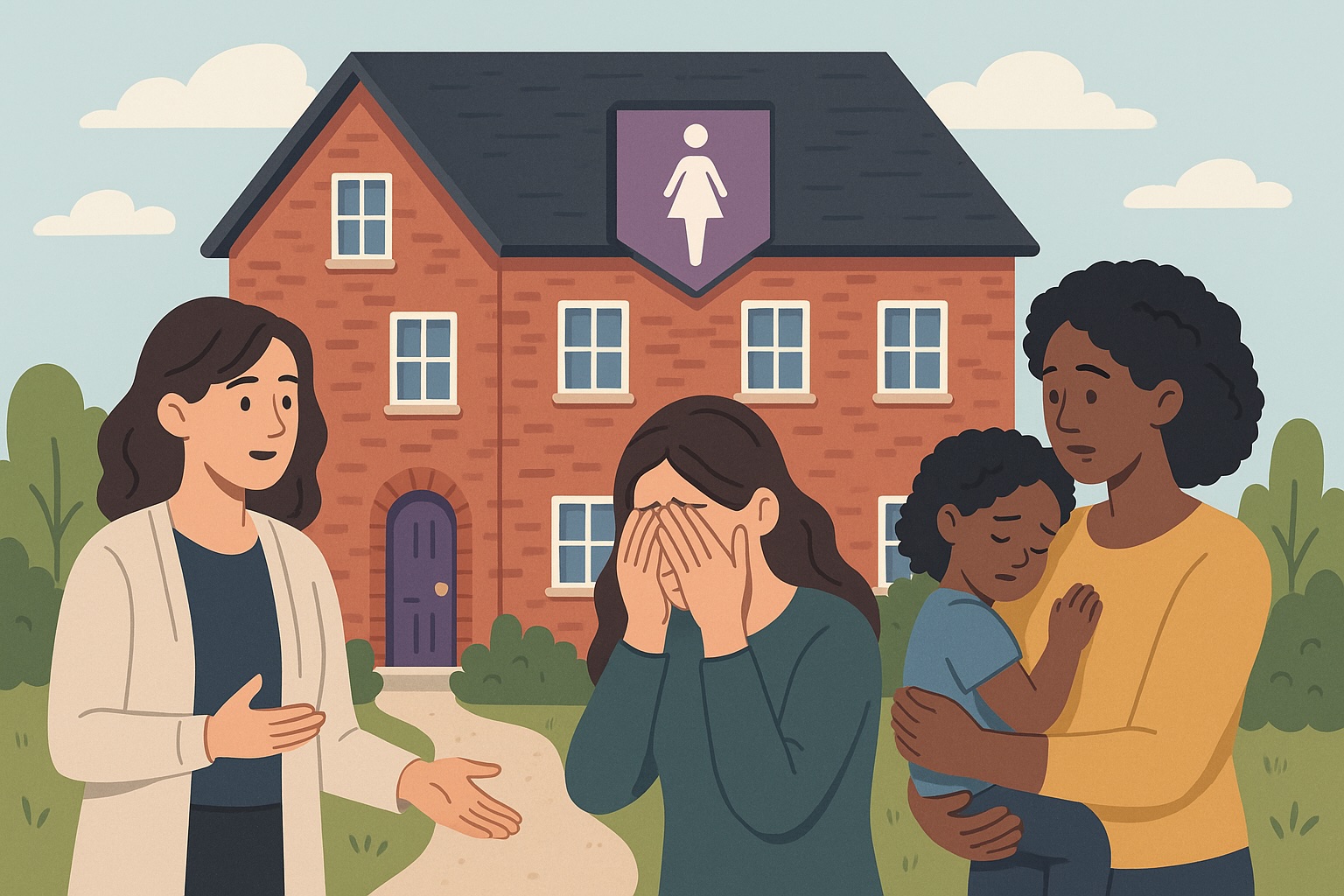Supervised Access for an Accused Parent in Ontario: What It Means and How It Works
When a parent is accused of domestic violence, supervised access may be ordered in Ontario. Learn what it is, who supervises visits, and how courts decide if it's safe.

When a parent is charged with or under investigation for domestic violence, courts in Ontario may order supervised access to ensure the child’s safety during visits.
Supervised access allows a parent to maintain a relationship with their child under controlled and monitored conditions, without exposing the child to further harm or stress.
This blog explains how supervised access works in Ontario, who supervises visits, and how courts make these decisions.
🛡️ What Is Supervised Access?
Supervised access means a parent can only see their child:
-
In the presence of a third party (supervisor)
-
At a safe, neutral location
-
For a fixed duration, usually pre-scheduled
It is used to protect the child while still promoting parental involvement when appropriate.
⚖️ When Is Supervised Access Ordered?
Ontario family or criminal courts may order supervised access when:
-
The parent is accused of domestic violence or abuse
-
There’s a risk of emotional or physical harm
-
The child witnessed violence or has expressed fear
-
The parent has mental health or substance use concerns
-
There’s a breach of previous access orders
Courts must always act in the best interests of the child under the Children’s Law Reform Act and Divorce Act.
👁️🗨️ Who Supervises the Visits?
Supervision may be provided by:
1. Supervised Access Centres (SACs)
-
Government-funded neutral locations
-
Staffed with trained professionals
-
Used for both supervision and safe drop-offs
2. Professional Supervisors
-
Paid third-party supervisors
-
Useful when SACs are full or unavailable
3. Agreed Family or Friends
-
May be approved if both parties consent
-
Must be neutral and trustworthy
🕒 How Often Are Visits Scheduled?
Typical supervised access arrangements include:
-
1–2 visits per week (1–3 hours each)
-
At set times and locations
-
Reviewed every few months by the court
🔁 Can Supervised Access Be Changed Later?
Yes. Supervised access is usually temporary and can be reviewed if:
-
The accused parent completes counseling or anger management
-
No concerns arise during supervised visits
-
The child expresses comfort and safety
-
CAS or the court finds the risk has decreased
Parents may request unsupervised or expanded access through court motions or consent agreements.
👩⚖️ Rights and Responsibilities of the Accused Parent
-
✅ You still have the right to maintain a relationship with your child
-
✅ You must follow all access conditions and show up on time
-
✅ You may bring a lawyer to request modifications
-
❌ Do not use visits to discuss court, custody, or adult matters
📌 Summary: Supervised Access in Ontario
-
✅ Ordered when there’s risk to the child during unsupervised visits
-
✅ Visits occur at neutral locations under third-party supervision
-
✅ Supervised access can be modified or lifted if conditions improve
-
✅ Courts prioritize the child’s safety and emotional well-being
-
✅ Accused parents retain parenting rights unless legally terminated
📞 Where to Get Help
-
Supervised Access Program Ontario – Find a location near you: ontario.ca/familyjustice
-
Legal Aid Ontario – 1-800-668-8258
-
Family Law Information Centre (FLIC) – Free court-based legal support
-
Children’s Aid Society (CAS) – May be involved in supervision reviews
-
Parenting Education Programs – Court-approved programs to help rebuild trust
Frequently Asked Questions (FAQs)
1. If I'm accused of domestic violence, will I automatically lose access to my kids?
No, not necessarily. A judge's primary focus is the child's best interests. If there are safety concerns, a judge is more likely to order supervised access rather than cutting off all contact. This allows you to continue seeing your child while ensuring their safety.
2. Who supervises the visits?
Visits can be supervised in three ways:
- At a Government-Funded Supervised Access Centre: These centres have trained, neutral staff.
- With a Paid Third-Party Supervisor: You can hire a private professional, like a social worker, to supervise visits.
- With a Trusted Individual: If both parents agree, a neutral family member or friend can supervise the visits.
3. Does supervised access mean the court believes I am guilty?
An order for supervised access is not a finding of guilt. It is a temporary, precautionary measure a judge uses when there are serious allegations that raise concerns about a child's safety. The court is acting to protect the child while the case proceeds.
4. What are my rights as a parent with supervised access?
You have the right to maintain a relationship with your child in a safe and positive manner. You also have the right to know the terms of the supervision and what is expected of you. If you comply with the court's requirements (like attending counselling), you have the right to ask the court to change the order to be less restrictive in the future.
5. How do I get supervised access changed to unsupervised access?
You must file a Motion to Change the court order. To be successful, you will need to provide evidence that the risk to the child has been reduced. This can include certificates from completed counselling programs, positive reports from the access supervisor, and a clear record of you following all court-ordered conditions.
6. Where can I find more information about supervised access in Ontario?
The Supervised Access Program Ontario website provides a directory of government-funded centres. You can also get legal advice from Legal Aid Ontario or a family lawyer, and the Children's Aid Society can be a resource if they are involved with your family.
